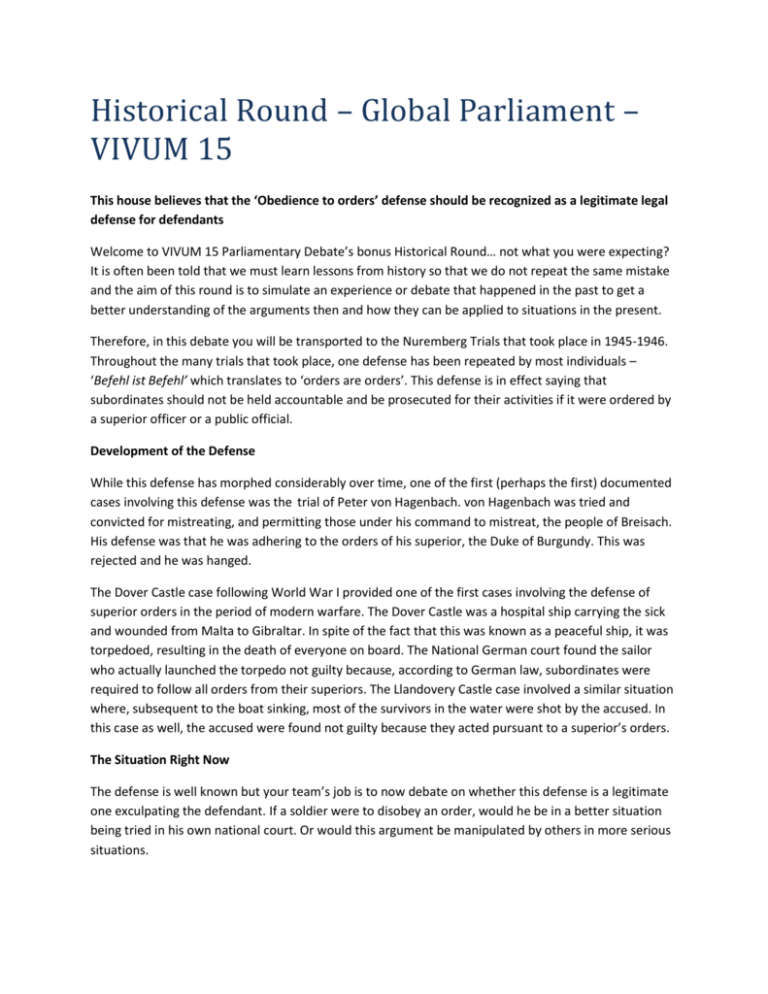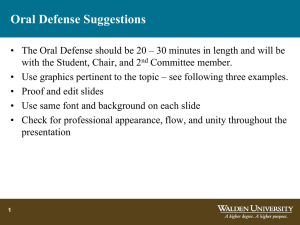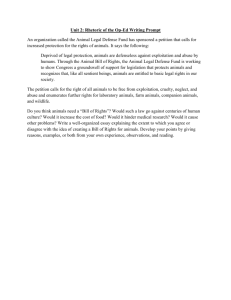Historic_Prelim_Obedience
advertisement

Historical Round – Global Parliament – VIVUM 15 This house believes that the ‘Obedience to orders’ defense should be recognized as a legitimate legal defense for defendants Welcome to VIVUM 15 Parliamentary Debate’s bonus Historical Round… not what you were expecting? It is often been told that we must learn lessons from history so that we do not repeat the same mistake and the aim of this round is to simulate an experience or debate that happened in the past to get a better understanding of the arguments then and how they can be applied to situations in the present. Therefore, in this debate you will be transported to the Nuremberg Trials that took place in 1945-1946. Throughout the many trials that took place, one defense has been repeated by most individuals – ‘Befehl ist Befehl’ which translates to ‘orders are orders’. This defense is in effect saying that subordinates should not be held accountable and be prosecuted for their activities if it were ordered by a superior officer or a public official. Development of the Defense While this defense has morphed considerably over time, one of the first (perhaps the first) documented cases involving this defense was the trial of Peter von Hagenbach. von Hagenbach was tried and convicted for mistreating, and permitting those under his command to mistreat, the people of Breisach. His defense was that he was adhering to the orders of his superior, the Duke of Burgundy. This was rejected and he was hanged. The Dover Castle case following World War I provided one of the first cases involving the defense of superior orders in the period of modern warfare. The Dover Castle was a hospital ship carrying the sick and wounded from Malta to Gibraltar. In spite of the fact that this was known as a peaceful ship, it was torpedoed, resulting in the death of everyone on board. The National German court found the sailor who actually launched the torpedo not guilty because, according to German law, subordinates were required to follow all orders from their superiors. The Llandovery Castle case involved a similar situation where, subsequent to the boat sinking, most of the survivors in the water were shot by the accused. In this case as well, the accused were found not guilty because they acted pursuant to a superior’s orders. The Situation Right Now The defense is well known but your team’s job is to now debate on whether this defense is a legitimate one exculpating the defendant. If a soldier were to disobey an order, would he be in a better situation being tried in his own national court. Or would this argument be manipulated by others in more serious situations. This debate and subsequent decision will influence Nuremberg and forever shape the landscape of international law – will the allowing of such a defense lead to a slippery slope or does it have the potential to prosecute people on unfair grounds?








